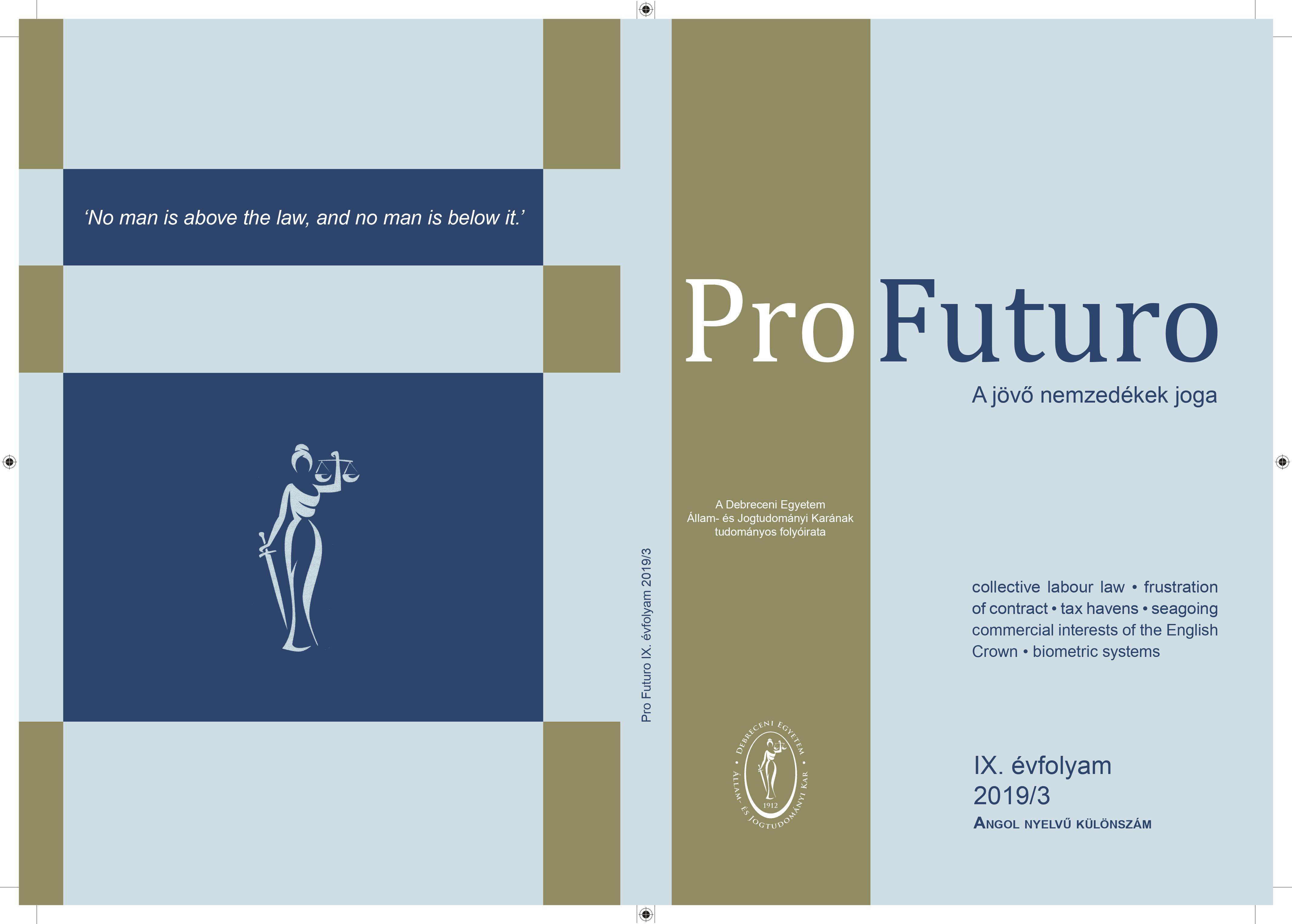Then and now: laws on first and second generation biometric systems
Szerző
Megtekintés
Kulcsszavak
Licenc
Copyright (c) 2020 Pro Futuro

This work is licensed under a Creative Commons Attribution-ShareAlike 4.0 International License.
Hogyan hivatkozzuk
Absztrakt
Habár a társadalom számára a biometrikus rendszerek kétségkívül nagy jelentőségűek és biztonságtechnikai szempontból tagadhatatlan előnyöket nyújtanak, nem szabad elfelejtenünk, hogy e rendszerek használatakor a magánszférát egyre fokozottabban érintő kockázatok jelenléte is kétségbevonhatatlan. Ezen kockázatok figyelembevétele és maguknak a rendszereknek az alapos és részletes ismerete szükségesnek tűnik ahhoz, hogy a felmerülő problémák jogi megoldásai is követhessék a szinte feltartóztathatatlanul terjedő és fejlődő technológiákat. Minél több szektor szánja rá magát a biometrikus rendszerek használatára, annál markánsabban jelentkezhetnek a magánszférát érintő kockázatok is, például adatvédelmi, illetve kódolási problémákat illetően.
Although the security benefits these technologies offer security benefits to our society, their widespread application can involves and clearly leads to serious legal issues and concerns, including technological encounters, disputes and grave concerns for individual citizens’ rights of privacy. Various forms of identification, such as driving licenses, passports, and other identity cards, are progressively being combined with biometric information used by ever-changing and more advanced systems. With no doubts, it can stated as well that the use of them will be spread to other sectors too. Therefore, It safe to assume that this noticeable prosperity of personal information will involve and ache for more advanced data protection measures, encryption technologies, and other safeguarding measures, both to inspire their acceptance and use by the civilian population and to keep this critical information from falling into the wrong hands.


 https://doi.org/10.26521/Profuturo/2019/3/5769
https://doi.org/10.26521/Profuturo/2019/3/5769